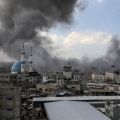By Genie Silver
Leadership Team, Middle East Peace and Justice Action Committee
February 2024
For those of us on the Middle East Peace and Justice Action Committee (MEPJAC) who have studied the history of the Palestinians and the Israelis, we’ve watched in horror as the current war between Israel and Hamas has unfolded. On Dec 29 of last year, South Africa (RSA) filed an application with the International Court of Justice (ICJ) in The Hague (the UN’s principal judicial organ) to initiate a lawsuit against Israel for violating the Genocide Convention in relation to the Palestinians in the Gaza Strip.
In order to help understand a bit more about what’s at stake, here is a bit of background about the conflict in Gaza and where we are today.
Current Conflict
As of Jan 26, Israeli Defense Forces (IDF) have killed more than 26,000 Gazans, according to the Gaza-based ministry of health. The UN has estimated this number includes more than 10,000 children and 7,500 women. In addition, on Jan. 8, the Gaza ministry of health reported there are at least 7,000 human beings missing in Gaza, presumed dead under the rubble. The agency also reported that more than 70% of homes in Gaza (300,000 out of 439,000) have been destroyed by the bombings. In a report that came out at the end of last year, the Wall Street Journal stated that by mid-December Israel had dropped 29,000 bombs on the Gaza Strip, which is one of the most densely populated areas in the world, with over 2 million people in a space that equals 141 sq. miles. The bombing has killed doctors, engineers, professors, students, teachers, farmers, human rights lawyers, pregnant women, newborn babies, journalists, aid workers, ambulance drivers, artists, writers and musicians, no one has been spared.
Israel has destroyed or damaged beyond recognition and repair Gaza’s universities, schools, libraries, cultural centers, mosques, churches, shopping malls, health centers including 32 of Gaza’s 35 hospitals and all civilian infrastructure. Robert Pape, a University of Chicago professor of political science who’s an expert on aerial bombardment, told the Associated Press, “Gaza is one of the most intense civilian punishment campaigns in history. It now sits comfortably in the top quartile of the most devastating bombing campaigns ever.” Corey Scher of the CUNY Graduate Center and Jamon Van Den Hoek of Oregon State University told AP, “Gaza is now a different color from space. It’s a different texture.” From bomb fragments found onsite and analyses off-strike footage, experts have concluded that the majority of bombs dropped by Israel are US made. Israel used internationally banned cluster and white phosphorus bombs and also dropped 2,000-pound “bunker-busters” that kill many hundreds of people at a time. Half of all the bombs they’re using are “dumb” bombs, non-targeted bombs that pose a greater threat to civilians.
How Did We Get Here?
The vast majority of the residents of the Gaza Strip are Palestinian survivors of the 1948 Nakba or their descendants. Nakba is the Arabic word for catastrophe, and it is what Palestinians call the creation of the state of Israel on the land they used to call home. Beginning at the end of 1947, Zionist armed forces began ethnically cleansing Palestinian villages and Palestinian neighborhoods in larger cities, like Jerusalem, Jaffa and Haifa. In all, 750,000 Palestinians were forced to flee to neighboring countries or Gaza. Plan Dalet (In Hebrew alphabet Dalet is the letter D), was hatched and put into effect by Zionist political and military leaders in March 1948, spelled out the methods of expulsion: intimidation, laying siege to and bombardment of villages, burning homes, possessions and goods, demolition and, finally, laying mines in what was left of the villages so Palestinians could not return to their homes.(Ilan Pappe. The Ethnic Cleansing of Palestine. London: Oneworld Publications, 2006)
On Dec 11, 1948, the United Nations General Assembly passed Resolution 194 that provided that Palestinian “refugees wishing to return to their homes and live at peace with their neighbors should be permitted to do.” Despite this, Israel has never allowed any Palestinian refugee to return to his/her home.
Sara Roy, a Harvard political economist and daughter of two Holocaust survivors has made it her life’s work to study and write about Gaza and how Israel has strangled its economy over time. She first arrived in Gaza in 1985 and remembers the remarkable ability of young Gazans, grandchildren of those who were expelled in 1948, to describe in detail the homes of their grandparents (https://www.nybooks.com/online/2023/12/19/the-long-war-on-gaza/).
Israel has occupied Gaza since its victory in the Six Day War in 1967. Roy writes that Israel continually added restrictions to Gazans’ movement to Israel and the West Bank. Hamas defeated Fatah in the 2006 legislative elections and took control of Gaza in 2007; that year, Israel began its total blockade of Gaza, imposing severe restrictions on who and what food products entered and exited Gaza. Israel completely controls its only two border crossings with Gaza: Erez for pedestrians and Kerem Shalom for goods. Although Egypt controls its only border crossing with Gaza, Rafah, Israel always monitors it. Israel controls how much food and potable water, electricity, and other goods enter and exit Gaza. US officials wrote in November, 2008, from Tel Aviv: “As part of their overall embargo plan against Gaza, Israeli officials have confirmed . . . on multiple occasions that they intend to keep the Gazan economy on the brink of collapse without quite pushing it over the edge.” Israel’s 17-year blockade of Gaza has devastated Gaza’s economy; the unemployment rate is at 46.4% and almost everyone in Gaza relies on humanitarian aid (https://www.nybooks.com/online/2023/12/19/the-long-war-on-gaza/).
In the past 17 years and before the current war, Israel has unleashed numerous aerial and land assaults on Gaza, killing thousands of Palestinians civilians and destroying much. The US gives Israel $3.8 bil per year in military aid – and if Israel’s Iron Dome (its aerial defense against rockets Hamas or other Gazan militias send into Israel) is depleted, the US Congress approves extra military aid to Israel. Gaza does not have, as Israel does, an Army, Air Force, Navy or nuclear weapons.
Hamas sees itself as the protector of the Palestinian people, including their brothers and sisters who live on the West Bank and in East Jerusalem. Hamas also feels it must protect the Al Aqsa Mosque in Jerusalem, the third holiest site in Islam, from incursions and raids by Israeli Occupation Forces. There are now upwards of 700,000 Jewish settlers living in illegal Israeli settlements in the West Bank, including East Jerusalem, according to a report made to the UN in 2023. Far-right Jewish Israeli leaders are arming Jewish settlers in the West Bank who are terrorizing and forcing out hundreds of Palestinians villagers from their homes. The Israeli occupying forces (IOF) work in tandem with the settlers; they do nothing to protect Palestinians. The IOF has been committing raids on towns and refugee camps in many parts of the West Bank for a long time, though they have increased since Oct 7. Since then, IOF have killed 387 Palestinians, many of them civilians and children.
It is in this context that Hamas broke through, and flew over, the wall Israel built along its border with Gaza. We condemn in the strongest terms and were horrified by Hamas’s massacre of 1,147 innocent Israeli civilians and their kidnapping of 235 Israelis, young and old, and foreign nationals.
The Case for Genocide
In RSA’s application to the ICJ to initiate a lawsuit against Israel for violating the Convention on the Prevention and Punishment of the Crime of Genocide (aka the Genocide Convention) in relation to the Palestinians in the Gaza Strip, it accused Israel of “acts and omissions... (That) are genocidal in character as they are committed with… Intent to destroy Palestinians in Gaza as a part of the broader Palestinian national, racial and ethnical group.”
The application further states that “Israel, since 7 October, in particular, has failed to prevent genocide and has failed to prosecute the direct and public incitement to genocide” and that “Israel has engaged in, is engaging in and risks further engaging in genocidal acts against the Palestinian people in Gaza.”
The Geneva Convention (GC) of 1948 is signed by 152 nations, including RSA, Israel and the US. To prove a nation is guilty of committing genocide, the accusing country has to 1) demonstrate intent on the part of the accused and 2) demonstrate that the accused committed physical acts of genocide. The GC recognizes five physical acts of genocide and a country can be found guilty of one or more of these acts. RSA is accusing Israel of committing of four acts of genocide
Given Israeli leaders’ public, brazen remarks dehumanizing Gazans and calling for their destruction, RSA had many remarks to choose from.
On Oct 15, 2023, Prime Minister of Israel Benjamin stated that Israeli soldiers “understand the scope of the mission” and stand ready to ”to defeat the bloodthirsty monsters who have risen against (Israel) to destroy us.”
On Oct 28, as Israel prepared to invade northern Gaza by land, he invoked the Biblical story of the Israelites’ total destruction of Amalek, “you must remember what Amalek has done to you, says our Holy Bible. And we do remember.”
The relevant Bible passage reads: “Now go, attack Amalek, and proscribe all that belongs to him. Spare no one, but kill alike men and women, infants and sucklings, oxen and sheep, camels and asses.” (https://www.icj-cij.org/sites/default/files/case-related/192/192-20231228-app-01-00-en.pdf pp. 59-60.)
In addition, at a Oct 12 press conference, making it clear there’s no distinguishing between Hamas and Gazan civilians, President of Israel Isaac Herzog stated, “It’s an entire nation out there that is . It’s not true this rhetoric about civilians not aware, not involved. It’s absolutely not true . . And we will fight until we break their backbone.” Out of 2.3 million Gazans, 1 million are children, Herzog obviously holds them responsible too. (https://www.icj-cij.org/sites/default/files/case-related/192/192-20231228-app-01-00-en.pdf P. 60.)
On 9 October, in an IDF “situation update” Israeli Minister of Defense Yoav Gallant announced that Israel was “imposing a complete siege on Gaza. No electricity, no food, no water, everything is closed. We are fighting human animals and we are acting accordingly.” He also told IDF troops on Gaza border that he’d “released all restraints.” He continued “Gaza won’t return to what is was. We will eliminate everything.” (https://www.icj-cij.org/sites/default/files/case-related/192/192-20231228-app-01-00-en.pdf pp. 60-61.)
Regarding the first genocidal act of killing members of the group, on Oct 7, Deputy Speaker of the Knesset (Israeli parliament) Nissim Vaturi tweeted, “Now we all have one goal — erasing the Gaza Strip from the face of the earth.”
In addition to those already listed on the death toll, Democracy Now reported last week that Israeli tanks shelled Gazans as they waited for humanitarian aid in Gaza city, 20 people were killed and 150 injured. Last week in Khan Younis, in southern Gaza, Israeli tanks shelled one of UNRWA’s largest facilities – a vocational training school where 30,000 Gazans were sheltering. The shells killed 12 and injured 75. UNRWA gave the IDF the coordinates of the vocational school. (https://www.democracynow.org/2024/1/25/gaza_akram_al_satarri)
The UN Relief and Works Agency (UNRWA) was set up in December, 1949 to help the 750,000 Palestinian refugees. There are now approximately 5 million Palestinian refugees who need aid.
Regarding the second genocidal act of causing serious bodily or mental harm to members of the group, there are reports of more than 64,000 Palestinians who are injured, according to the Gaza ministry of health – an estimated 70% of whom are women and children, and many so severely injured, they needed an amputation of an arm or leg.
Since the beginning of this war, Israel has issued evacuation orders continuously. The first evacuation order in October called for one million Gazans to evacuate, a logistical impossibility, especially when one needs to evacuate hospitals with very sick patients, premature babies in incubators and the infirm elderly. In one video, a Palestinian woman said she’s have to evacuate seven times under the threat of torture. An estimated 85% of Gazans are internally displaced. Most Gazans are living in tents; there are extremely few toilets and places to shower. It is a catastrophic sanitation situation. Having lost one’s home, family members, and living in squalid conditions can cause serious mental harm. What about injured children whose whole family has been killed? No doubt, if they survive this war, they’ll be traumatized for life.
Regarding the third genocidal act, deliberately inflicting on the group conditions of life calculated to bring about its physical destruction in whole or in part, Defense Minister Gallant’s orders (above) for a siege seems a clear indication of intent. Before this war, Gaza was dependent on 50 trucks of humanitarian aid a day. Israel stopped those deliveries entirely until the brief ceasefire, but then and up until the present, Israel is impeding the delivery of humanitarian aid. There is simply not enough food and potable water, there are no medicines to treat the very sick and patients who have heart problems, cancer, diabetes and other medical issues. There is no electricity and Israel is severely limiting the amount of fuel needed to run hospital generators and communication hubs, cell phones and computers. Israel is over and over again is destroying communication towers in Gaza. Last week, there was no cell and internet service for six days. When Israel lets them through, ambulances don’t know how to locate the injured. On January 4, the UN warned that, because of Israel’s relentless bombardment and shelling and Israel’s ongoing blockade, Gaza has “become uninhabitable.” The UN warned last week that almost half a million people are at “catastrophic risk” of starvation, that famine has reached Gaza with rapid speed. https://www.jewishvoiceforpeace.org/2024/01/11/israels-war-textbook-genocide/ https://www.cnn.com/2024/01/16/middleeast/gaza-famine-starvation-un-israel-war-intl-hnk/index.html
Regarding the fourth act of genocide, imposing measures to prevent births within the group, there are 50,000 pregnant woman in Gaza. All of Gaza’s hospitals are closed, except for two in southern Gaza that have just received evacuation orders. The others were destroyed by Israel’s bombardments and tank shellings. There is no place for pregnant women to safely deliver their babies. If by some miracle women deliver healthy babies, they have no formula and very little, if any, potable water to drink themselves or mix with the formula.
ICJ Ruling - Will it Change Anything?
The preliminary ruling of the ICJ was released Friday, Jan 26. The court was convinced by the RSA’s application and a full hearing is set to follow. Because the ICJ could take years adjudicating this case, the court instructed Israel to submit a report to the RSA in one month for its review. In the report, Israel is obliged to detail how, when and where it has taken the compulsory measures not only to prevent genocide, but also the incitement to genocide and to allow humanitarian aid into Gaza.
To the disappointment of those of us in the peace, freedom and justice movement, ICJ did not rule for a ceasefire. There are 15 judges who sit regularly on the ICJ and both the prosecuting country and defending country may appoint ad hoc judges, so 17 judges in all voted on the following provisional measures requested by RSA:
- By 15-2: Israel shall take all measures within its power to prevent all acts within the scope of Article 2 of the GC (Israel and Uganda voted against).
- By 15-2: Israel must immediately ensure that its military does not commit acts within the scope of GC.2.
- By 61-1: Direct and punish all members of the public who engage in the incitement of against Palestinians. (Israel voted against rulings 3-6)
- By 16-1: Ensure provision of urgently needed basic services, humanitarian aid.
- By 15-2: Prevent the destruction of and ensure the preservation of evidence to allegation of acts of G.2
- By 15-2: Israel shall submit a report as to how they’re adhering to the orders to the ICJ within 1 month.
Action To Take
- Please reach out to your senators and representatives to ask them to call for an immediate ceasefire in the Israel-Hamas War. Request that they vote against military aid to Israel as long as Israel violates the human rights of Palestinians in the Occupied. The Capitol Switchboard number: 202-224-3121
- Many countries have made statements supporting RSA’s case before the ICJ. They are: Turkey, Jordan, Malaysia, Bolivian, Colombia, Brazil, Cuba, Maldives, Namibia, Pakistan, Nicaragua and the 57 nations in the Organization of Islamic Countries.
As well as making statements of support, it is important that these countries to formally file their support with the ICJ. World Beyond War has a template of a letter you can send to these countries asking they make that filing with the ICJ. Below is a link to you to WBW’s template.
https://worldbeyondwar.org/gaza-genocide/


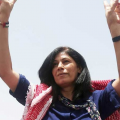



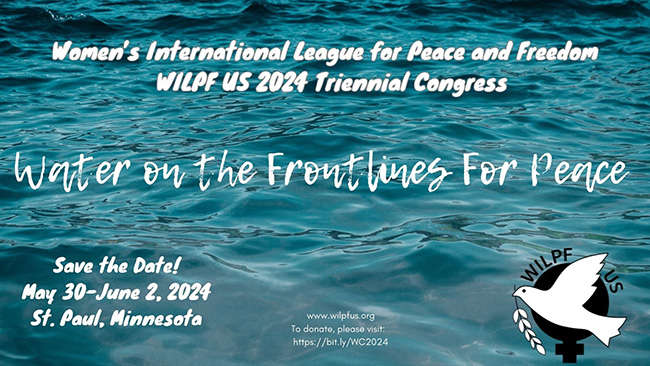
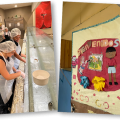
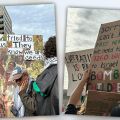
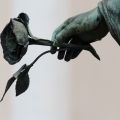
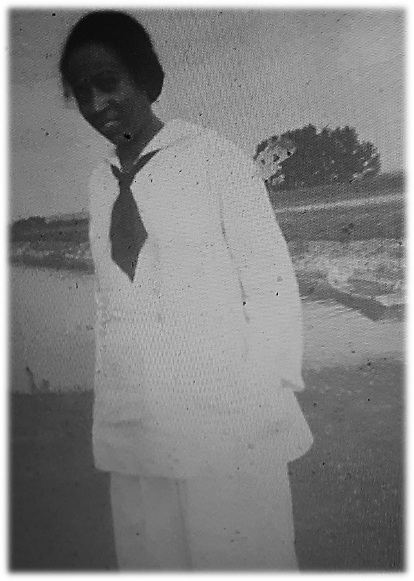 In 1914, at the age of 20, Caroline entered Drake college in Des Moines, Iowa to become a teacher. She was the only Black student in her class which was not a socially comfortable situation back then. But grandma Caroline refused to let racism, prejudice and discriminatory treatment stop her. She chose to become an educator during a historical period when 90% of the USA’s enslaved African descendant population still resided in the Southern states. It was a time when the Jim Crow South’s discriminatory practices made it extremely difficult for the newly freed slaves to obtain any formal schooling.
In 1914, at the age of 20, Caroline entered Drake college in Des Moines, Iowa to become a teacher. She was the only Black student in her class which was not a socially comfortable situation back then. But grandma Caroline refused to let racism, prejudice and discriminatory treatment stop her. She chose to become an educator during a historical period when 90% of the USA’s enslaved African descendant population still resided in the Southern states. It was a time when the Jim Crow South’s discriminatory practices made it extremely difficult for the newly freed slaves to obtain any formal schooling.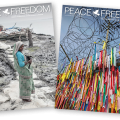
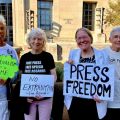
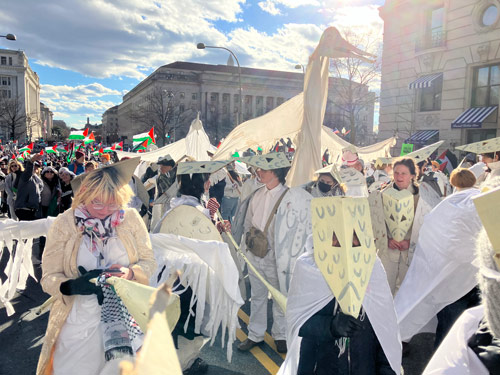 Other members joined contingents in the gigantic March that proceeded from Freedom Plaza to the White House. Four members of the DC Branch of WILPF outfitted themselves in white to join the Bread & Puppet Theatre's continent with its many birds (wings & bird masks), including large bird puppets hovering over the Marchers as we proceeded along the streets. Bread & Puppet Theatre is a politically radical theater based in Vermont. WILPF's Dianne Blais had notified our branch of the opportunity to join the continent.
Other members joined contingents in the gigantic March that proceeded from Freedom Plaza to the White House. Four members of the DC Branch of WILPF outfitted themselves in white to join the Bread & Puppet Theatre's continent with its many birds (wings & bird masks), including large bird puppets hovering over the Marchers as we proceeded along the streets. Bread & Puppet Theatre is a politically radical theater based in Vermont. WILPF's Dianne Blais had notified our branch of the opportunity to join the continent. 
